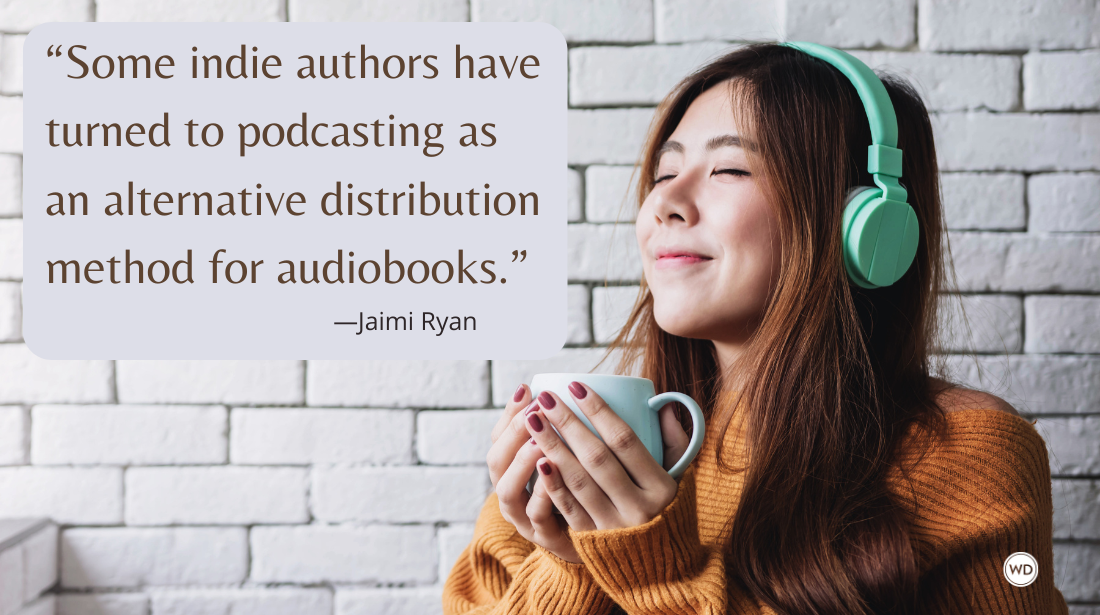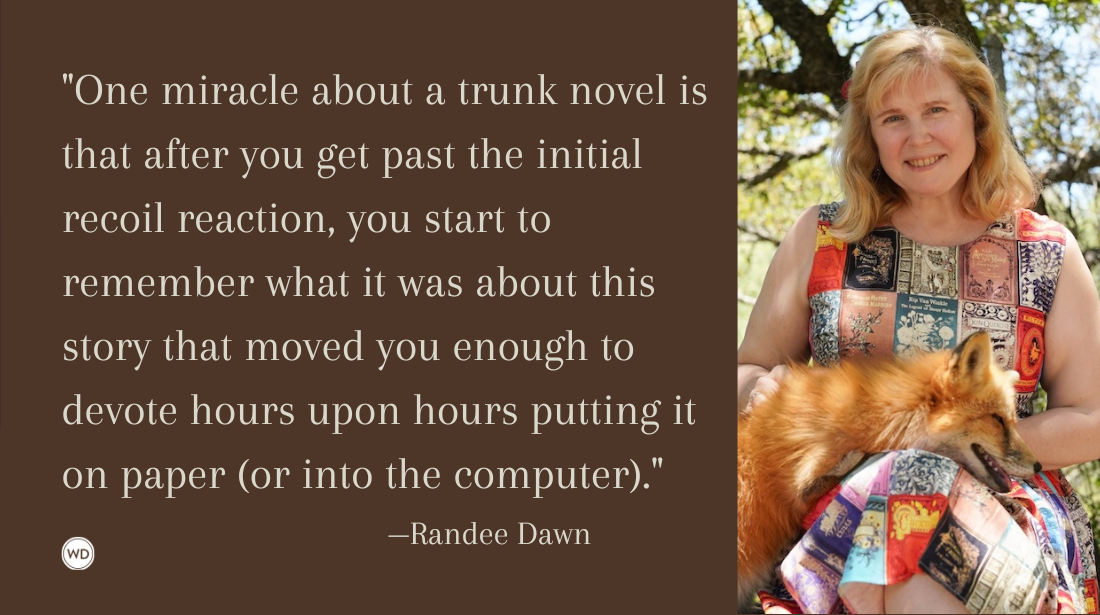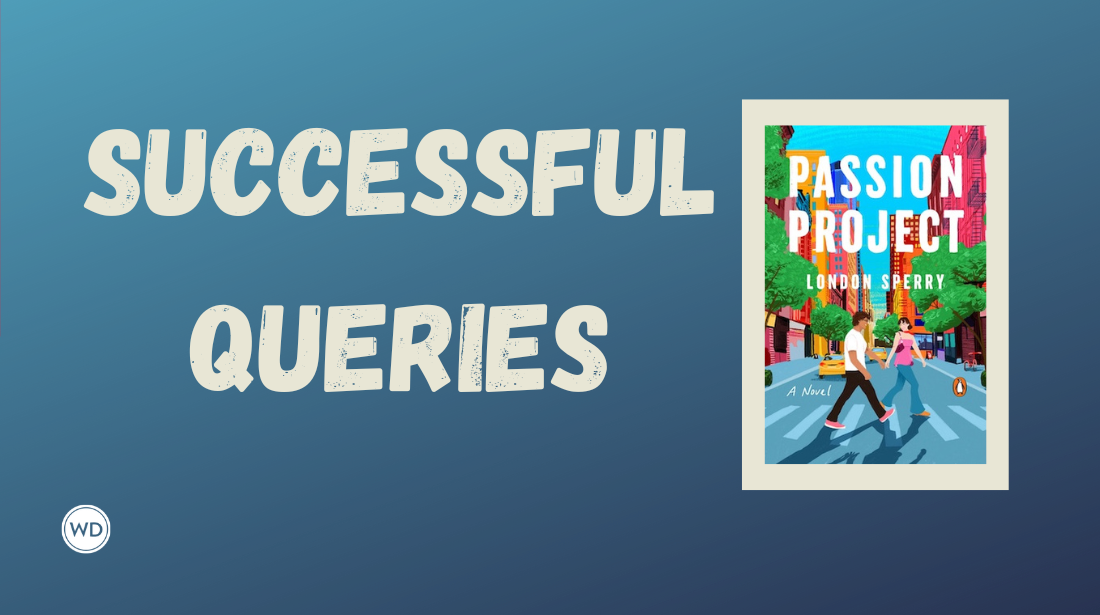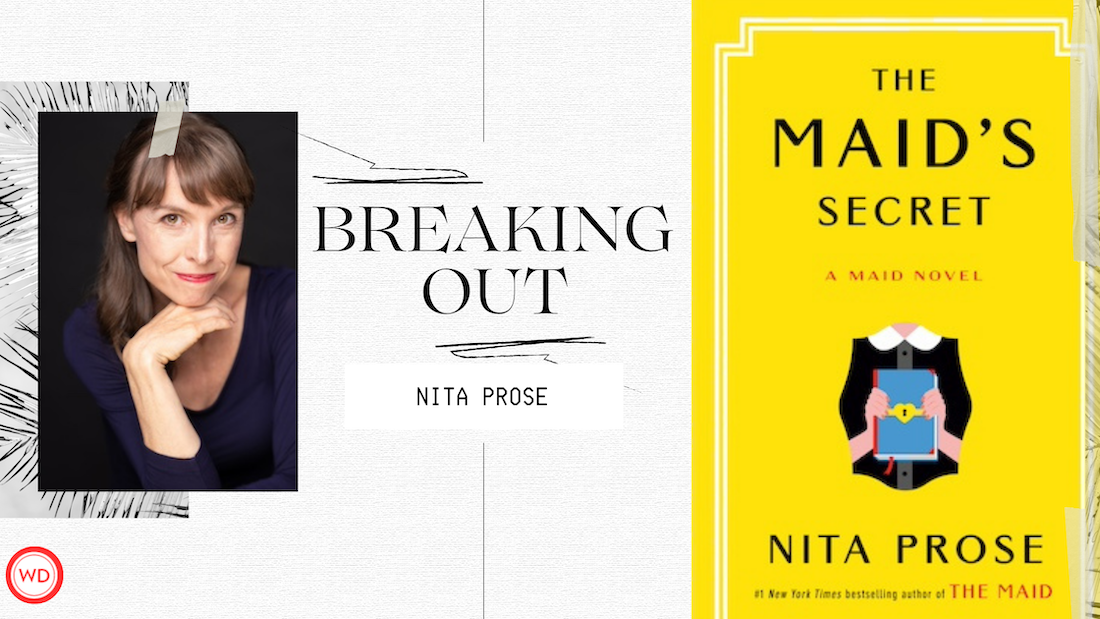On the Business of Self-Publishing a Novel: Finding and Engaging Your Audience
In the second of a three-post series on the business of self-publishing, AJ Wells shares his experience of reading hundreds of self-published books, as well as tips and advice from other indie authors on how to find and engage with their audience as they venture into self-publishing.
I judge for the Writer's Digest Self-Published Novel and eBook Competitions each year. To date, I've read over 550 self-published books. The toughest aspect of judging, for me, is coming across an incredible novel only to find it hasn't even scratched the surface of potential in sales. As a fan of self-published novels, I set out to learn more about authors' processes related to the business of self-publishing. This is a three-article series, having released the first in September, and the final will appear in November. Special thanks goes to these wonderful self-published authors Katy Regnery, Scott Semegran, Ashleigh Nugent, and Victoria Ventris Shea, for their time and thoughtful contributions to these articles.
*****
In Writing a Standout Self-Published Book, I included a section on taking risks in your self-published book and even said that "All in all, I'd absolutely prefer to read a risk-taking self-published novel over one that plays it safe." While that is absolutely still true, let's take some time to think about how that looks on the business side of things.
Self-publication allows you complete control over the production side of your novel, which, in my opinion, provides a great opportunity to experiment and challenge your readership. That is hard to argue with on the literary side of things, but in terms of business and marketability, we might need to add a few clauses or exceptions. If your goal is to make money, you must write a book that people will pay to read. That may seem obvious, but there is a process of uncovering and recognizing what books are already out there making money and how your book fits into the established market. In my judging experience, I most commonly come across stories that have been told 10 times over. Sometimes, I find books that are so unique and not even relatively close to anything out there, yet the story is so farfetched that the relatability and believability is lost. Rarely (but it is a special moment when it happens), I pick up a book that stands alone, but operates within an established market and has been crafted towards a specific readership.
To expand upon that, a book that plays it safe often appears as something like another farmyard book for children or a fantasy book that might as well be fanfiction for Tolkien. A book that experiments too much would be one where the willing suspense of disbelief is not even possible—a great example of that would be a story of my own that I was fond of in my early undergrad days. The concept revolved around a mad scientist who was influenced by Egyptology and sought to prove that when people died in their dreams, they lost an alternative universe life and were one step closer to dying in the real world. Creative and unique? Sure. Believable or marketable? Not really.
A successfully commercial book should have an ideal audience in mind that's proven and tested. Many will tell you that in a query letter to agents, a necessary inclusion is to list commercially successful books that are similar to yours while also explaining how your book is different from them. If your similar books are timeless classics like Catcher in the Rye or The Lion, the Witch, and The Wardrobe, you're probably out of touch with the audience that will actually buy your book. Instead, research books that have been recently published and understand the elements that made them stand out. Then, try to see how your book fits the gap in the commercial space you're attempting to enter.
As you maneuver this research, you're learning about your book's own marketability. Katy Regnery, self-published romance writer who is a New York Times and USA Today bestselling author, explains "You can make your voice stand out within your market. Everybody wants to think they have a voice, maybe they do. But your voice has to be marketable." In this case, voice represents your idea, how you execute the idea, and whether or not you're readable. A major aspect of realizing your "voice," in how Regnery uses the term, comes in understanding your audience and the people who are likely to buy your book.
Ashleigh Nugent, who wrote Locks, a novel that operates deeply on the topics of racial experience and injustice, spoke about the ideas of truth and honesty being the most important reasons in why he chose to be a self-published author—but when I pressed him on the question of his target audience and who he envisioned reading his book, he smiled like someone who had been caught. "Eyes widen every time I answer that question," he said. "My target audience is middle-class, middle-aged white women. Because, that's the people who buy books."
Whether or not you agree with his statement, there is a lot to be said for having a realistic understanding of who will actually spend money on your book as you write. Nugent could have easily expelled his primary readership through language use and his profound 'honesty' of which he is so proud, yet he did his research on the people likely to make his novel a commercial success and kept them in mind as he wrote about racial experience from his own male perspective. Regnery's thoughts on this matter were expressed as a do or die question, "Do you want to be an artist and write your words into the void, or do you want to be a marketable author who writes words that people want to read and spend money on?"
But to write for an audience that may not perfectly understand the story you're trying to tell might defeat the concept of power and control of self-publishing. When I expressed to Nugent that his ideas on "honesty" and marketability didn't line up, he explained that he felt comfortable with his understanding of his ideal audience for Locks. Then he explained, "I have to be honest. I was scared the audience wouldn't get it. It's not as if I knew a middle-class, middle-aged white woman would get it; I hoped." He hoped, but not in the way of a wish and prayer, but in the sense of that he gave his best effort to provide a perspective true to his idea, and still speak in a way that his target audience could relate to, according to how he had interacted with his audience already.
Regardless of the demographic that you're looking to write towards, there are many ways of relating to your audience, even before you actually begin to write. As some examples, Scott Semegran, an award-winning self-published author of eight books, believes his podcast Austin Liti Limits has been a huge part of his commercial success and allowed him to connect with his audience and grow interest in his books. Through the invitation of other authors onto his podcast, he's able to build from their established fanbases as well as organically grow his own through connectivity and relatability. To build interest in Locks, Nugent self-produced a one-man show to present his book through a different artistic form that would attract potential readers. Regnery pursued her fanbase through social media and built a Facebook following of over 5,000 and gained 10,000 Twitter followers in the span of six months while "posting, commenting, connecting, being genuine, [and] being available" (From Katy's Website). This process took being on social media "for about six hours a day." I've also come across authors who create email lists as they're explaining the idea of their novel to people. If they find someone interested, they'll ask for the person's email and add them to the list so that when the time comes to publish, they have an established audience to notify about the book's availability.
In terms of selling your book, it's important to understand what books are out there and what gap in the market you're trying to fill. At the same time, try to recognize how your book speaks to your ideal audience and why your book has commercial appeal. Don't think you have to wait until the book is published to pursue an understanding of your marketability. If you get started early, you're claiming that independent power that self-publishing provides. Absolutely, take those risks, though make sure they're calculated and well executed for the purpose of an intended readership.
AJ Wells holds a literature and creative writing MA from Auburn University. He was also a visiting graduate student at the Iowa Writers' Workshop. He earned his BA from The College of the Holy Cross where he double majored in English and classics and minored in rhetoric. He currently lives in his hometown Buena Vista, Georgia.








